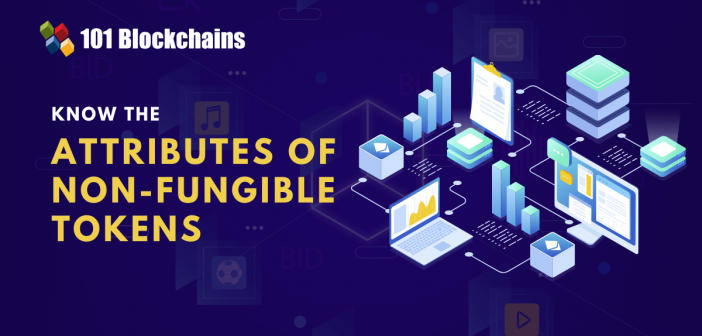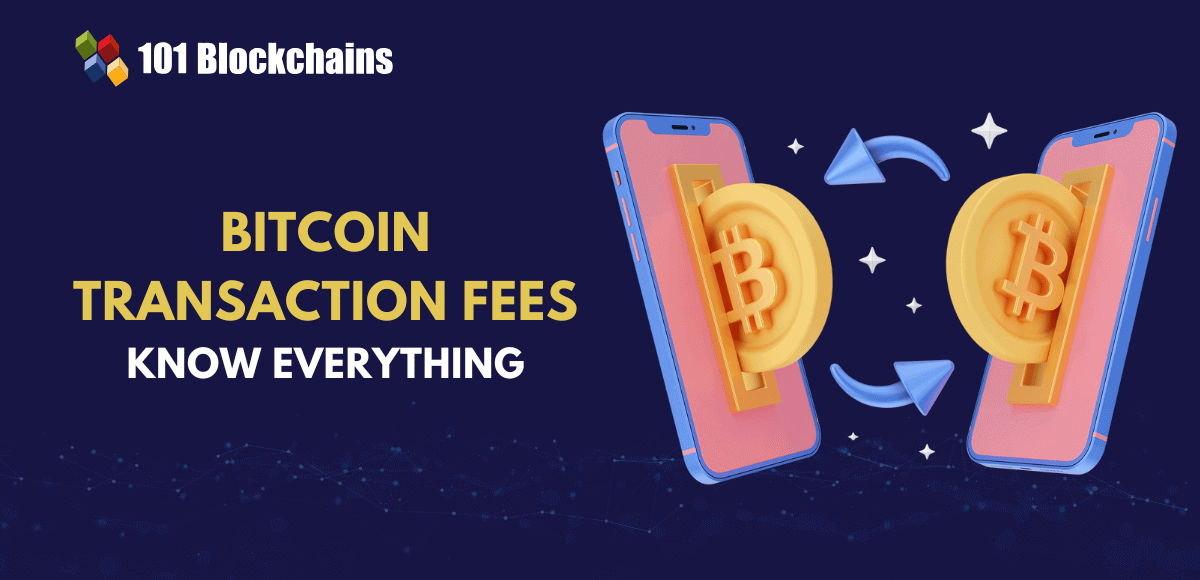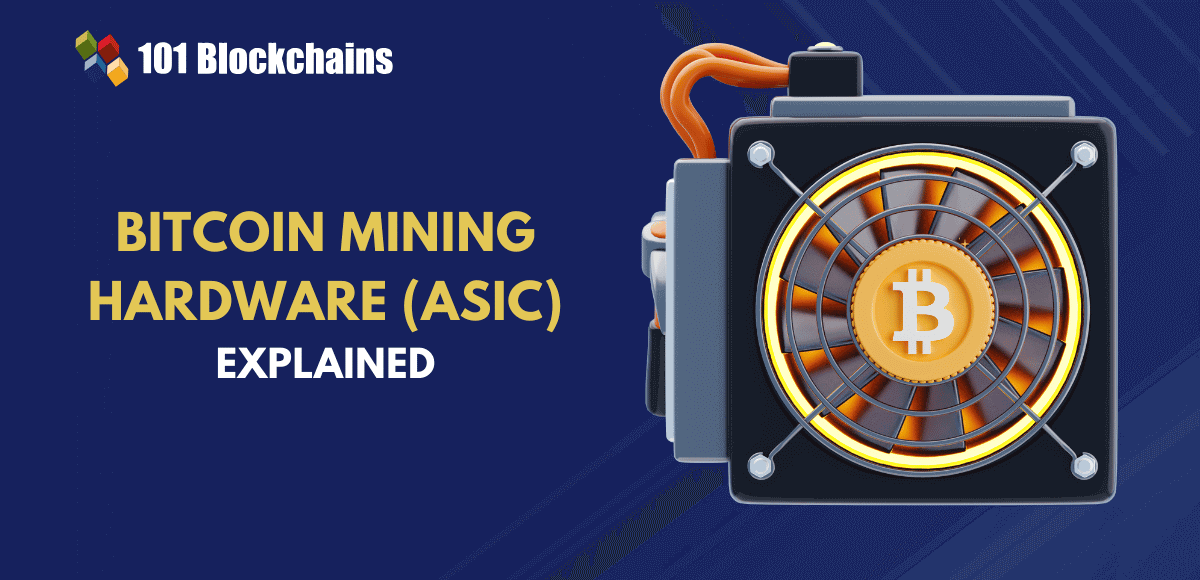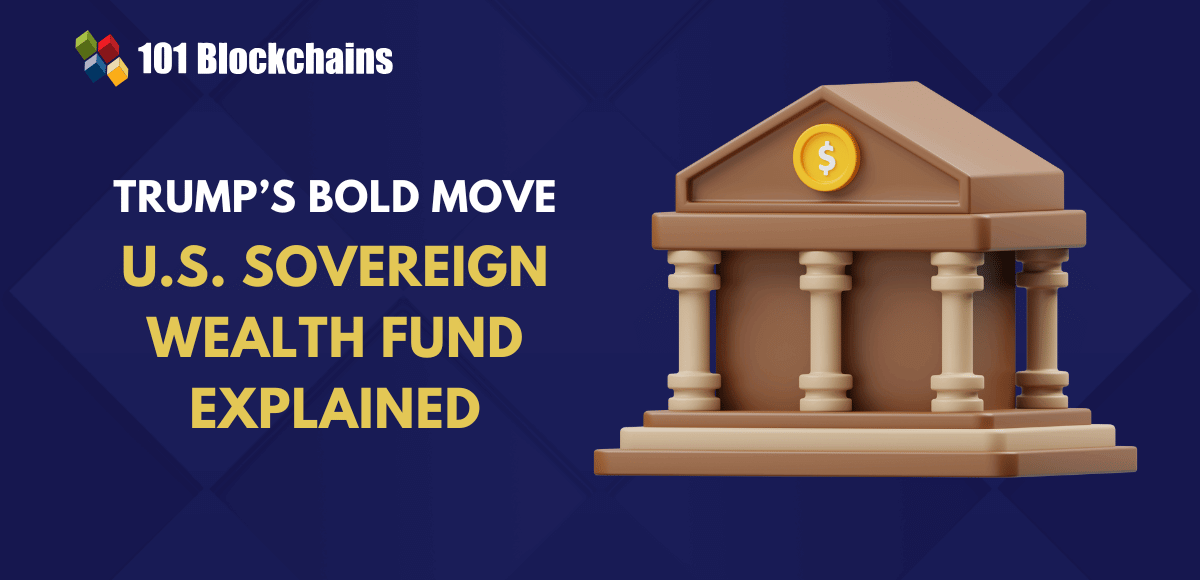Learn how blockchain truly works, master key definitions, and uncover what makes smart contracts so "smart." Dive into the fundamentals, gain valuable insights, and start your blockchain journey today!

Guides
Diego Geroni
on September 01, 2021
Understanding the Attributes of Non-Fungible Tokens (NFTs)
Distributed ledger technology or DLTs, such as blockchain, have shown immense potential among emerging technology ideas, which challenge existing business models. The conventional business models experienced setbacks due to lack of speed and the burden of costly intermediaries for creating trust. Over the years, the improvements in distributed ledger technologies introduced concepts that could improve simplification in transactions. At the same time, DLT solutions also enabled a prolific reduction in cost of exchanging value. NFT attributes showcased the value of non-fungibility in asset management and served as unique identifiers for a completely new class of digital assets. The following discussion helps you obtain a detailed review of the traits of non fungible tokens and their significance.
Aspiring to Become a Certified NFT Expert? Enroll in Certified NFT Professional (CNFTP) Course Now!
Traits of Non-Fungible Tokens
Non fungible tokens are just blockchain-based digital tokens providing representation for unique assets. The unique assets could include artwork, media, or digital content. Most important of all, NFTs could be an irreversible digital certificate of ownership for a specific asset. So, it becomes reasonable to wonder about the attributes of non fungible tokens which help them offer their value advantages.
The interest in the traits of non fungible tokens has increased profoundly, with many enthusiasts eager to discover the factors underlying the operations of NFTs. With a total market value of almost $2 billion as of the first quarter of 2021, NFTs are definitely a point of attention now. So, let us discover the individual NFT features in detail before you dive into the world of non fungible tokens.
Want to become an NFT Expert? Enroll Now: NFT Fundamentals Course
-
Indivisibility
One of the foremost traits of non fungible tokens refers to indivisibility. As a matter of fact, NFTs have been tailored to be indivisible by default for serving their utility. For example, you cannot purchase a plane ticket and divide it between two people. Only one person could buy a ticket and use it because there is only one seat.
Indivisibility implies that you cannot divide an NFT into smaller tokens, and you need to purchase the whole NFT for owning an item. So, when you pay for the NFT, you own the complete item or not any of it if you don’t pay. On the other hand, the concept of fractional ownership is also another improvement over the NFT characteristics of indivisibility.
Fractional ownership now enables multiple users to own NFTs, which represent a share in real-world assets. For example, fractional ownership is a promising factor for the real estate sector, where NFT holders can exercise a share of ownership in different types of properties. You can think of a situation where multiple parties have NFTs that represent ownership of a holiday resort.
The different parties can work on agreements for using the holiday resort and integrate the conditions in their NFTs. As a result, fractional ownership can address the concerns of illiquidity arising due to the indivisibility of NFTs. While it is not possible to divide an NFT into multiple tokens, it is easier to represent an asset in the form of multiple NFTs.
Get familiar with the basic and advanced Non-Fungible Token (NFT) terms with the NFT Flashcards
-
Uniqueness
The next and most critical entry among attributes of non fungible tokens refers to uniqueness, which is basically related to indivisibility. NFTs are unique by definition, especially with the element of non-fungibility. Fungibility implies that you can replace an asset with a similar asset. Many of the fungible assets are the same, and you can easily divide or exchange fungible assets for one another.
For example, you can get ten $10 bills in exchange for one $100 bill. On the other hand, non fungible tokens offer the value of non-fungibility with uniqueness as a primary trait. Non-fungibility basically implies that you could have only one type of NFT without any other alternative.
Uniqueness is one of the prominent NFT attributes which establish their value. NFTs are cryptographic tokens providing representation for unique assets with individual characteristics for differentiating NFTs from one another. Ownership of NFTs is considered similar to the ownership of a collectible antique or a vintage artwork.
The value of NFTs largely comes from their uniqueness. For example, you cannot interchange NFTs representing two different artworks. As a result, NFT creators can claim premium value for their NFTs. On the other hand, buyers or NFT owners could have the assurance of the value of a unique asset in their possession.
Want to become a Cryptocurrency expert? Enroll Now in Cryptocurrency Fundamentals Course
-
Ownership
Speaking of possession, another critical entry among NFT features refers to ownership. The ownership of an NFT is one of the factors you could find in the subtext of NFT traits. NFTs are indivisible, and only one person could own an NFT. At the same time, NFTs are unique and are under the ownership of a single user. However, you should also take the factors of right to usage and right to ownership when discussing NFT attributes.
You can find NFTs living on a distributed ledger technology with a related account. The creators of the NFT have control over the private key for the associated account with the NFT. The creators have privileges for transferring NFTs to any account. On the other hand, owners could get the ownership rights of an NFT stored on a blockchain.
It is also possible that NFT creators could offer multiple tokens as a representation of a single NFT, referred to as digitally native NFTs. Another possible cause of the ownership attribute in NFTs refers to the allocation of NFT metadata. The NFT metadata allows NFT holders to use them without actually having the ownership rights to them.
-
Authenticity
The most important trait of non fungible tokens, which has gained profound attention in recent times, refers to authenticity. Non fungible tokens provide representation for real-world assets, and it is important to have authentic NFTs. By definition, authenticity is an important addition among NFT characteristics which ensures the uniqueness of NFTs.
With the NFT on a blockchain network, it is easier to find out details regarding NFTs in an effective manner. NFT owners could take a look at the audit trail associated with an NFT to find out its history. As a result, it can ensure better verification of real-world assets during trading or exchange. NFTs have unique identifiers which separate them from other NFTs as well. The assurance of cryptography ensures the value of authenticity in NFTs.
Learn about the fundamentals of NFTs, NFT marketplaces, NFT wallets, NFT projects, and real-world use cases through Non Fungible Tokens (NFTS) – A Definitive Guide Ebook
-
Digital Wallet
As you know, NFTs are created and associated with specific blockchain accounts. You have NFTs basically on blockchain networks, and it is important to note the value of transparency in NFT features. Public distributed ledgers or blockchain technologies are immutable and decentralized in nature.
Since the records of issuing and transferring tokens alongside token activity can be open for public verification, NFTs ensure transparency. Most important of all, the functioning of NFTs as digital wallets on blockchain technology provides the benefit of the trust.
NFTs can enable verification of records related to different processes on the token through a simple dashboard with a blockchain foundation. Therefore, NFTs could offer exceptional prospects in terms of establishing the trust of buyers in NFTs. When you can know all the details about an NFT, you are more likely to make a better decision relating to it.
Furthermore, the NFT attributes of hosting on a DLT or blockchain technology ensure the advantage of interoperability. Users could also carry out trading, purchases, and sales of NFTs throughout different DLTs by leveraging a decentralized bridge. NFTs can also allow for interoperability with the use of centralized custodial services.
Build your identity as a certified blockchain expert with 101 Blockchains’ Blockchain Certifications designed to provide enhanced career prospects.
-
Rarity
The final and most crucial mention among attributes of non fungible tokens would refer to scarcity or rarity of NFTs. Rarity is actually one of the basic tenets driving the value of NFTs. Therefore, NFT creators could develop many NFTs, albeit with a certain limit to ensure scarcity.
For example, the organizer of an event can decide the number of event ticket NFTs they want to issue. If the organizer issues only 100 tickets to an event, then the auction bids for the tickets would become competitive. On the other hand, if the organizer issues 5000 NFTs as tickets, the bidding competition can subside somehow.
In some special cases, you can have NFTs minted with similar characteristics to each other, like replicas of tickets. On the other hand, some NFTs have distinct traits, such as tickets for a particular seat. Furthermore, you could also have specially minted and rare NFTs which serve as unique collectibles.
It is also important to note that every NFT will have a distinct identifier and would have only one owner. The scarcity of the NFT depends considerably on the perception of NFT creators. For example, an NFT creator could focus on making every NFT totally unique to ensure scarcity or produce multiple replicas for specific reasons.
Learn more about the basics of NFT (Non-Fungible Token) and the practical implications of non-fungible tokens with the NFT Skill Paths
Bottom Line
The different NFT characteristics provide the foundation for establishing a promising case for their future. As a matter of fact, the various traits of NFTs showcase how they can leverage the properties of blockchain for revolutionizing the representation of assets. First of all, NFT offers indivisibility, thereby ensuring that one NFT cannot be divided among multiple owners. However, fractional ownership can let people own multiple NFTs, which form a part of the rights to an asset. The uniqueness of NFTs comes in the form of the non-fungibility traits, which imply that NFTs are not interchangeable.
Non fungible tokens are created and stored on blockchain or DLT networks and could offer adequate security and authenticity. Users could verify the ownership of NFTs easily as one of the key NFT attributes supports ownership verification. The association of every NFT with unique identifiers also ensures the value of rarity, which contributes to improvements in value. Start exploring more about the world of NFTs and their attributes right now!
*Disclaimer: The article should not be taken as, and is not intended to provide any investment advice. Claims made in this article do not constitute investment advice and should not be taken as such. 101 Blockchains shall not be responsible for any loss sustained by any person who relies on this article. Do your own research!






